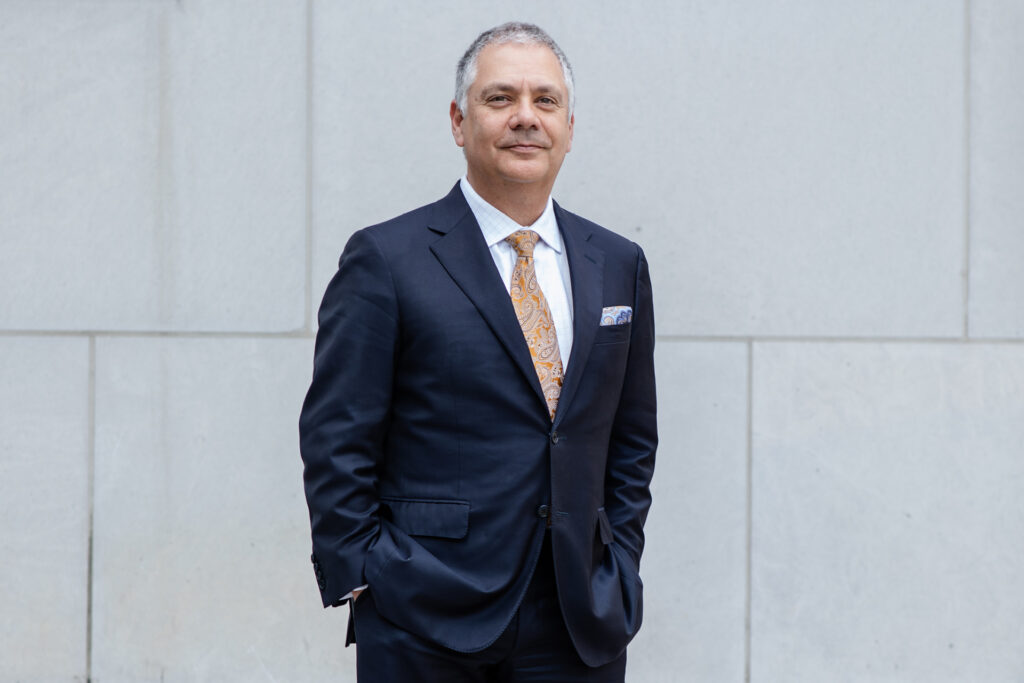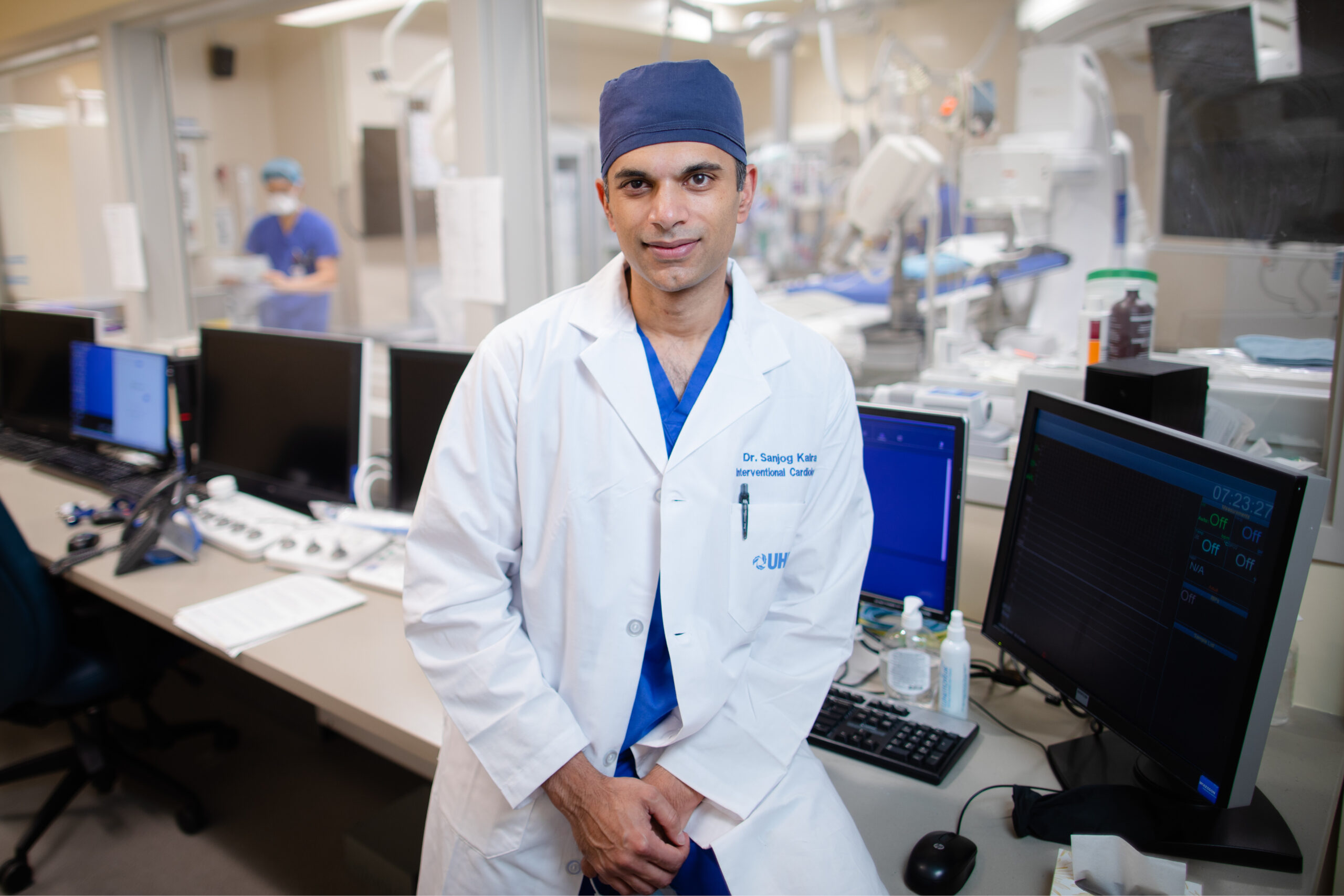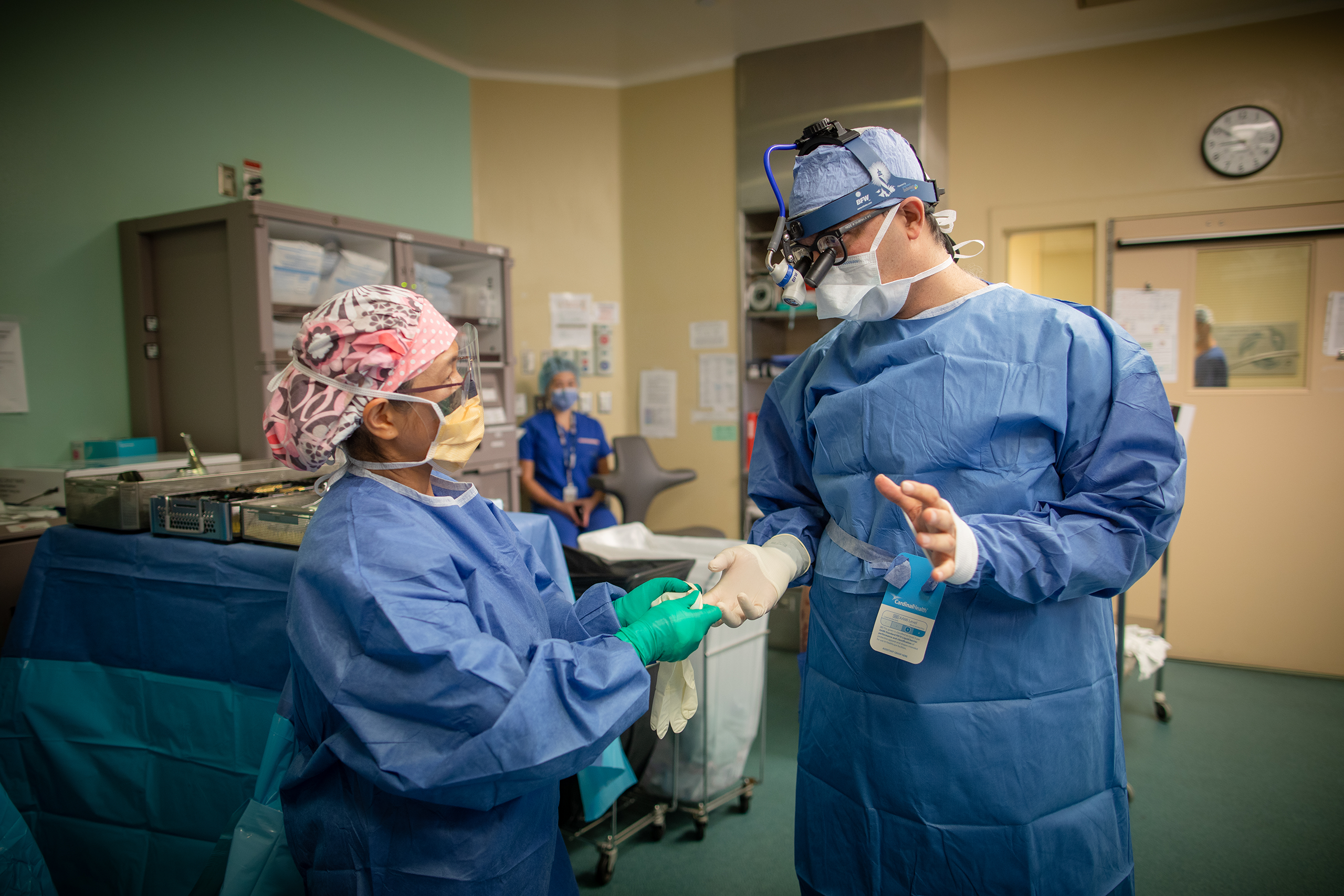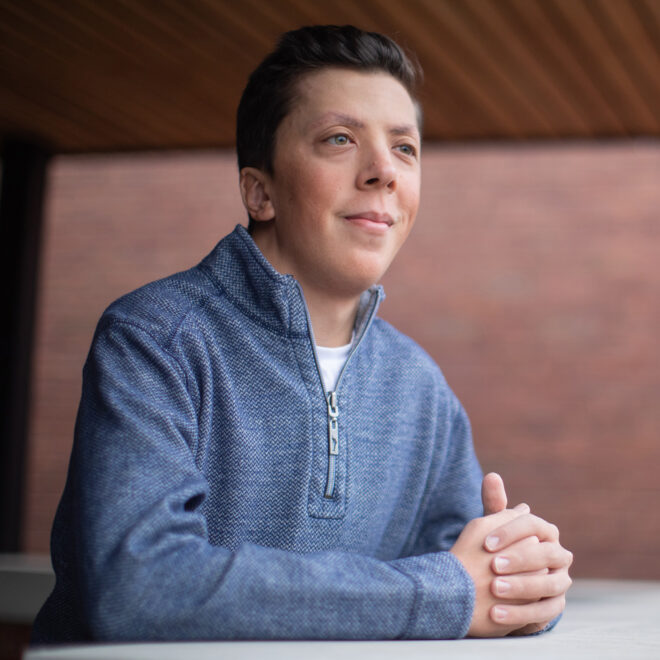Ahead of the game
When patients come to the Peter Munk Cardiac Centre, they are cared for by world-class talent.
Dr. Barry Rubin, Medical Director and Chair of University Health Network’s Peter Munk Cardiac Centre, is always thinking about the future. Every year, he searches the world for clinicians who are the best at what they do in the hopes they’ll bring their expertise to the Peter Munk Cardiac Centre to meet the needs of patients not just today – but also decades from now. “We want to be the place that develops new therapies to help us better treat patients,” says Dr. Rubin. “We never want to rest on our laurels.”
Dr. Rubin was intent on finding physicians who focus on particularly complex and minimally invasive surgeries, a growing specialty that is becoming an increasingly important treatment option for patients. “Imagine the skill required to sew a 2.5-millimetre bypass to a 2.5-millimetre artery through a 10-millimetre scope,” he says. “This is a big part of the future of cardiac care.”
Meet two of the Peter Munk Cardiac Centre’s newest recruits, who Dr. Rubin says “will help us continue to push the envelope and be the place that is ready and able to take on any problem in cardiovascular disease.”

A natural fit
62
The average number of fellows trained across all divisions each year. The Peter Munk Cardiac Centre has made Toronto a global hub for education in cardiac and vascular disease.
Dr. Sanjog Kalra had a sense of déjà vu during his first shift at the Peter Munk Cardiac Centre this past fall, and for good reason: between 2008 and 2011, he did many rotations there as an internal medicine resident. Walking down the halls as an interventional cardiologist was a new experience.
Dr. Kalra is an expert in complex and high-risk interventional procedures (CHIP) that involve treating narrowed heart arteries. He is an expert in delivering care to patients with an extremely complicated mix of medical problems, such as poor ventricular function, malfunctioning blood flow and kidney disease.
He was drawn to interventional cardiology because it was the best opportunity, in his mind, to impact people’s lives. “You can take somebody who walks through the door with a 50 per cent chance of survival and have them back to their normal life in just a few days,” he says. “That’s magical to me.”
In 2015, he became the world’s first CHIP fellow at Columbia University. (A fellow is a physician who trains in a specialty after completing their residency.) There he learned every aspect of complex and high-risk percutaneous coronary intervention (PCI), a non-surgical procedure in which clinicians use a catheter to place small stents into arteries that have been narrowed or completely blocked by plaque buildup. Two years later, Dr. Kalra created a similar program at Philadelphia’s Einstein Medical Center.

Without CHIP specialists, patients with these kinds of comorbidities can’t have procedures to treat their heart disease, as surgery is not usually an option. Thanks to Dr. Kalra’s steady hand, however, that’s no longer the case. Since he’s joined the team, patients can now get specialized treatments, such as advanced and complex PCI. He’s also part of the team working in the Peter Munk Cardiac Centre’s new Dr. Susan Lenkei-Kerwin Catheterization Laboratory, a high-tech lab designed for minimally invasive procedures.
“[It’s] magical to me.”
Dr. Sanjog Kalra, on why he was drawn to interventional cardiology
When Dr. Kalra was asked by Dr. Rubin to join his team, he was thrilled. “I was interested in coming back to Canada, but my specialty was not commonly done in the country,” he says. “The Peter Munk Cardiac Centre has always been highly progressive and patient-centred. That is what attracted me.”
Dr. Kalra’s goal is to further establish the Peter Munk Cardiac Centre as a national and international leader in CHIP and other procedures. And he’s excited to do it in a place he calls home.

The future is minimally invasive
48%
Percentage of fellows who are philanthropically funded at the Peter Munk Cardiac Centre.
All Dr. Piroze Davierwala needs to make a huge impact on a patient’s life is a tiny incision. Through an opening no longer than five or six centimetres long, Dr. Davierwala performs some of the most complex mitral valve repair and arterial bypass surgeries, a form of cardiac care that some call the wave of the future. In some cases, surgery is done through 10-millimetre-wide scopes, with no incisions. “We don’t cut open the chest bone at all,” he says.
If it sounds challenging to operate on something as delicate as the heart through a small opening, it’s because it is, but such arterial bypass techniques can lead to drastically shorter recovery periods than traditional methods, decreased risk of infection and longer-lasting results than venous bypasses. “There aren’t many surgeons in the world who can do this,” says Dr. Davierwala, who was the Director of Coronary Bypass Surgery at the Leipzig Heart Center in Germany before joining the Peter Munk Cardiac Centre. “But it’s a much better operation for the patient.”
When Dr. Davierwala was young, he witnessed the power of medicine and the importance of patient care first-hand. He was born in Pune, India, where his mother, an obstetrician-gynecologist who is still practising at 82 years old, would bring him to work, exposing him to all the good physicians can do. “I was drawn to this right from the beginning,” says Dr. Davierwala. “I needed to become a doctor.”
“I was drawn to this right from the beginning. I needed to become a doctor.”
Dr. Piroze Davierwala
He decided to focus on the heart after studying at the University of Pune, where he became fascinated with the intricacy of the circulatory system and the life-changing impact cardiovascular surgeons make.
After university, and spending seven years as a general and cardiovascular and thoracic surgery resident in India, Dr. Davierwala moved to Canada for a three-year fellowship at the University of Toronto. He quickly fell in love with the city’s culture and was mentored by top clinicians, including Dr. Tirone David, the world’s leading practitioner of open-heart surgery and the Melanie Munk Chair in Cardiovascular Surgery at the Peter Munk Cardiac Centre.
From there, Dr. Davierwala went to Leipzig, where he learned how to do minimally invasive procedures, ultimately becoming a global leader in this kind of surgery. He now wants to bring that excellence to the Peter Munk Cardiac Centre. “Unique challenges keep me motivated,” he says. “Right now, in Toronto, minimally invasive surgery is not done to the extent it is in Germany. Coming here is a great opportunity to take the program to another level.” Dr. Davierwala hopes that through small incisions, major progress can be made.

